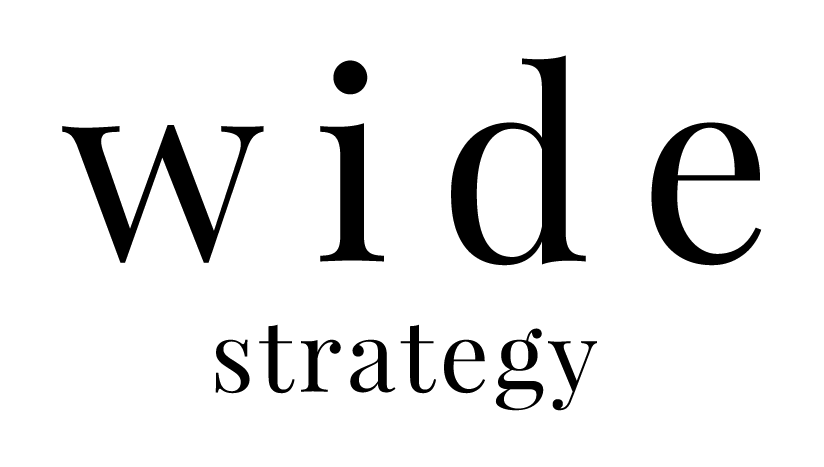7 Takeaways from The 2019 Employee Engagement Awards Conference
Created in 2013, Engage for Success is a growing, dynamic, voluntary movement promoting employee engagement as a better way to work that benefits individual employees, teams and whole organisations. Engage for Success collaborates with CIPD and is led by its core values: To be inclusive, practical and accessible and to be an inspirational force for change both in the UK and internationally. Wide Strategy takes part in the organisation’s Thought and Action Steering Group since the beginning of the year.
Drawing from the experience of the 2019 Employee Engagement Awards Conference as documented by People Insight, here are some key engagement policies shared by 7 successful organisations: Lincoln University, Ocado, Last Minute, Hive, PKF Cooper Parry and Unicef.
- Employee Engagement is more than money at Lincoln University
The public sector can’t rest on their laurels when it comes to attracting and keeping top talent. Ian Lincoln, University of Lincoln’s Head of Rewards talked us through their rejuvenated perks programme. Their data showed that good pay wasn’t enough to keep people engaged and their current recognition scheme felt out of touch. They came up with a new programme, tailored to staff needs. A visual portal lets employees navigate around a University campus to choose benefits including Financial Wellbeing support, Freecycle scheme and Book clubs.
2. Get the employee experience right from the start at Ocado
Ocado’s Team Manager, Anna Krzak won the ‘Unsung Hero’ award for her work helping new starters settle in. They created a portal designed to make their onboarding journey that little bit smoother. New employees can explore their benefits programme, see progression examples from across the business, access training videos and hear messages from management. Getting the employee experience right from the start can improve retention rates and customer satisfaction whereas the price of a bad hire can be at least 30 percent of the employee’s first-year earnings.
3. Take risks, but take your people with you too at Last Minute
As businesses grow and change at a faster pace than ever, taking employees with you is key to making this change a success. Last Minute’s Chief of Culture, Stuart Bagnell, reflected on how to help people cope with disruption. Evaluating your culture and values is the first step; a strong set of values can guide business decisions and how people respond to change. Last Minute’s values of Communicate, Collaborate and Motivate act as a reference point during times of significant change – a good example is how they helped people adjust to a change in leadership. They introduced a live webcast Q&A where employees could ask questions directly to their new CEO, a forum now held regularly to share why changes are happening.
4. Bringing the right energy to work at Hive helps employee engagement
Smart home provider Hive talked about a different kind of energy control that can help eliminate ‘bad’ work days. Their Director of People Science discussed how the energy around you at work can mean the difference between a good or a bad day. ‘Physical Energy’ is influenced by sleep, health and exercise – we all know the drill for these. But ‘Emotional Energy’ is influenced by more intangible things like sense of achievement, pride, workplace relationships and expectations of wellbeing. Getting the balance right between these to add up to make your day a ‘good’ (or even a great) one. And there’s a role here for the employer too, we noticed parallels with the emotional influencers and the factors our PEARLTM engagement model measures to determine how engaged an employee is.
5. Culture pays off at PKF Cooper Parry
Culture dominated the conversation this year, with public and private sector organisations sharing their challenges and experiences. Financial Services have been at the centre of talk about Culture change, so it was interesting to hear PKF Cooper Parry talk about their cultural transformation. Focusing on culture helped double their revenue in three years and create a place where employees are more engaged and motivated. They came up with new values to define their culture and introduced initiatives that help them ‘live these’ every day. For example, their culture is defined by trust & accountability, so the company introduced unlimited holiday giving employees more control over their time. We also love the idea of a company bucket list!
6. Your internal newsroom improves employee engagement at Unicef
Everyone is drowning in content but you’ve got announcements that are crucial to get through to your people. Social work channels like Slack and Skype for Business are on the rise, giving people access to short bursts of information in real-time. Unicef took this one step further and created UUK News, an interactive news channel based on Facebook Workplace:
- Their news channel uses live streams, videos and polls to share content
- Employees receive alerts about relevant or important posts
- Content is tailored to staff feedback.
It’s also proved an important tool for opening up conversations about stress and wellbeing. Following a post from a member of staff sharing her struggles, Unicef set up a Health & Wellbeing Group to carry on the conversation in a safe place.
At the Employee Engagement Awards Conference, the concluding take away was summarized in the motto: Treat your employee experience like your customer experience. More organisations seem to be shifting into approaching their employee experience as a lifecycle. This merger of Employee and Customer Experience looks at every encounter with an organisation to maximise the experience from both perspectives.

